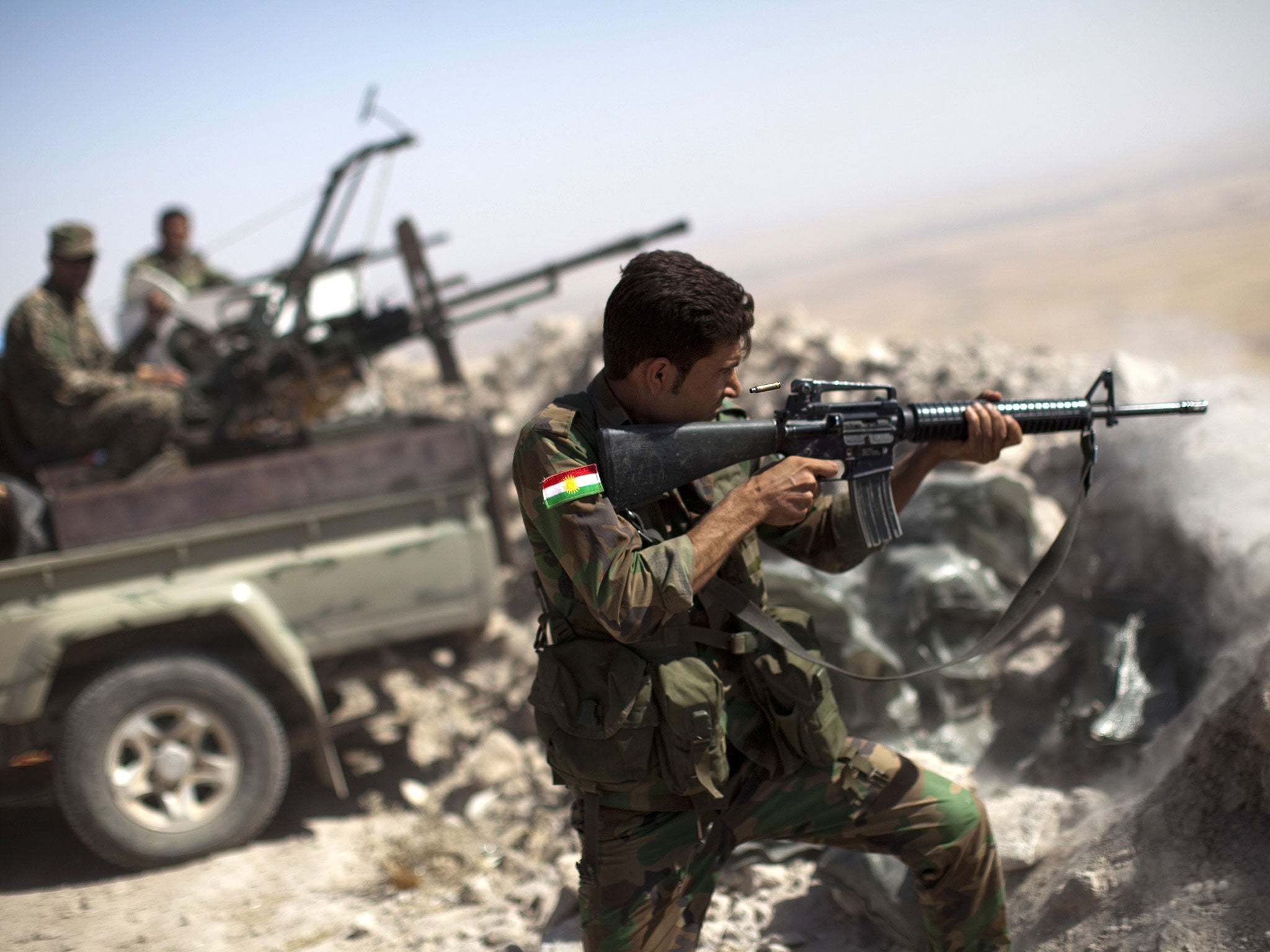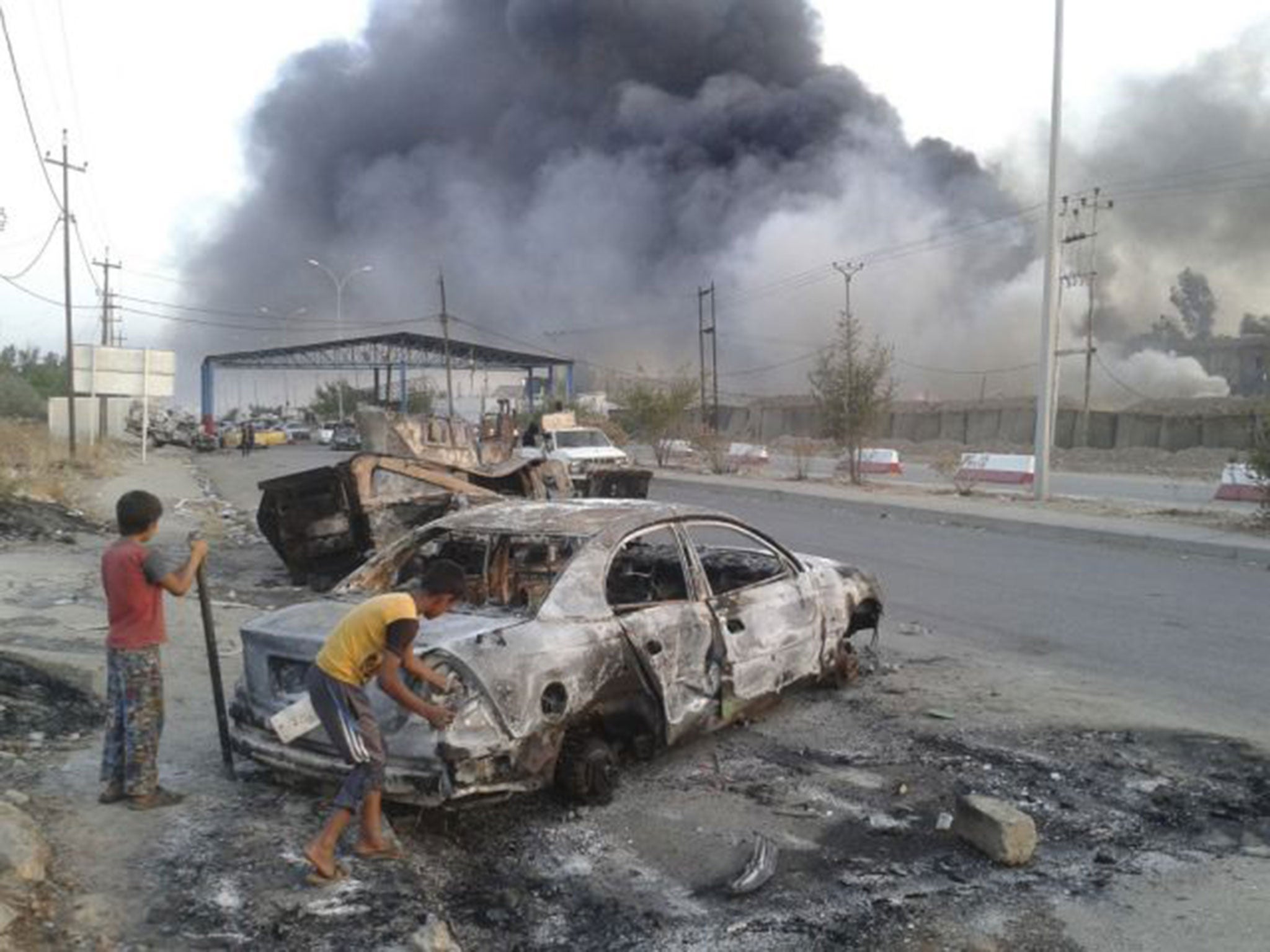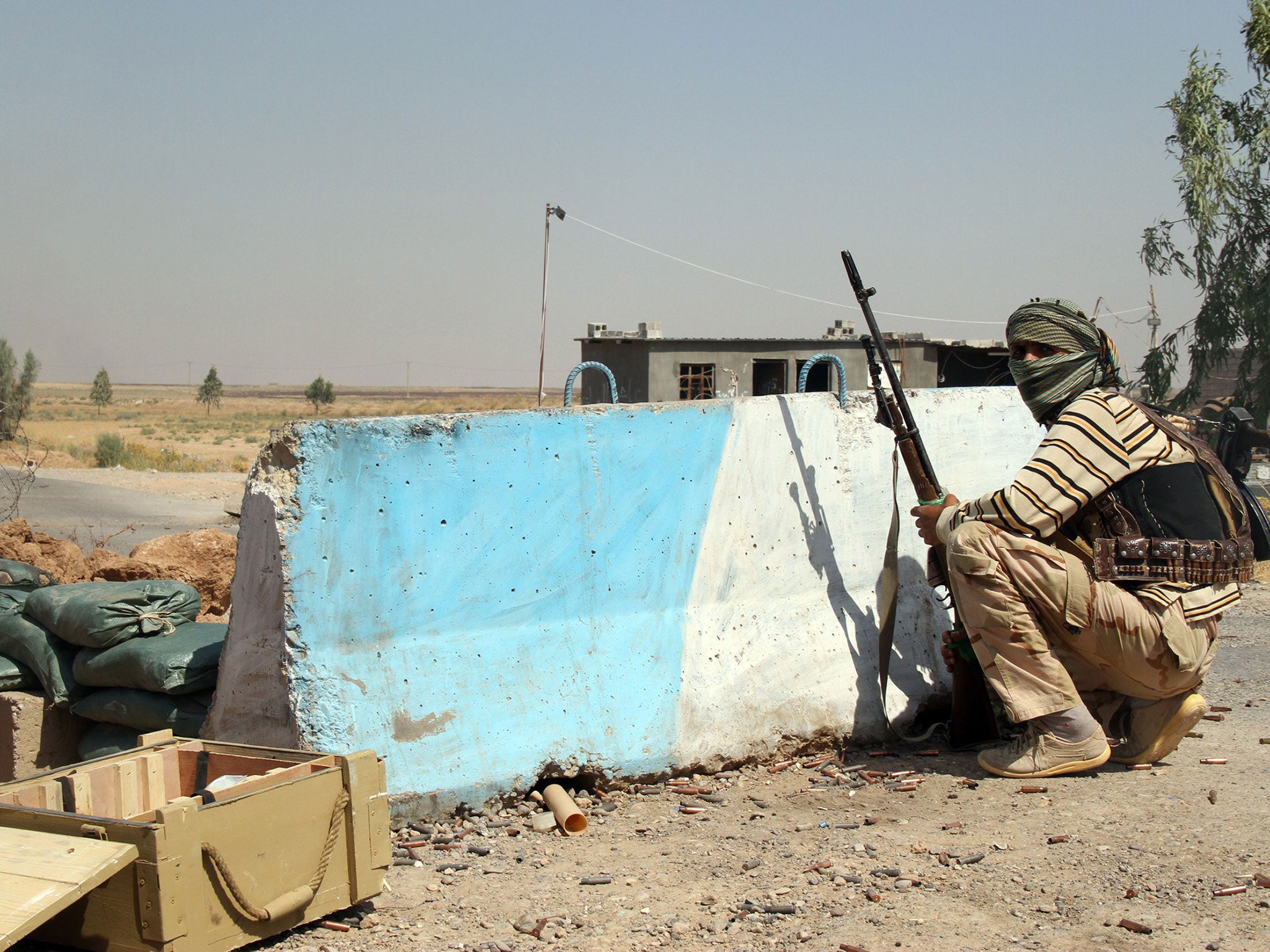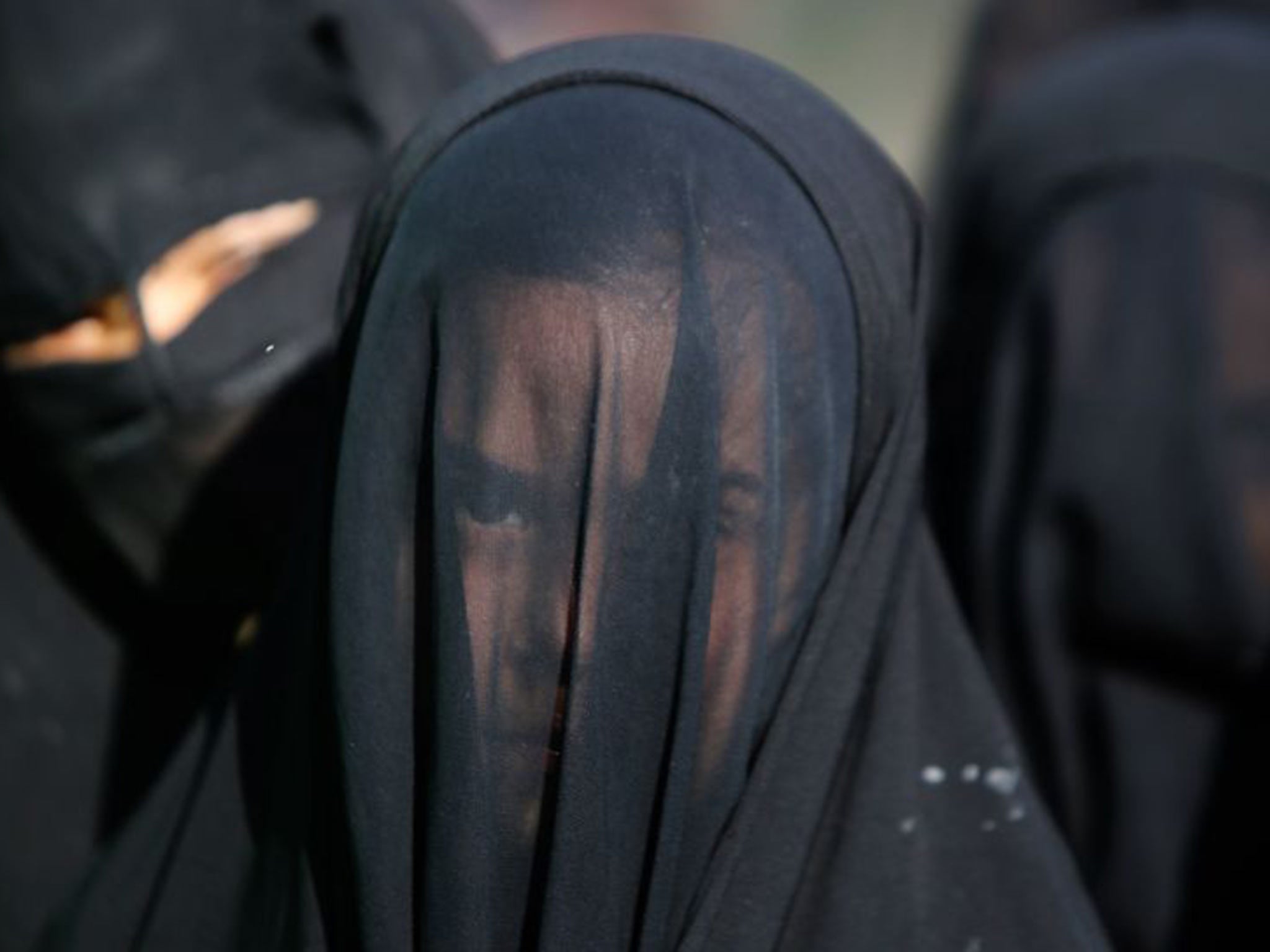How Isis shocked the world by capturing Mosul and advancing on Baghdad
In the final excerpt from his new book, Patrick Cockburn describes how clear signs of Isis’s growing strength were ignored until their spectacular victories against the Iraqi army


Your support helps us to tell the story
From reproductive rights to climate change to Big Tech, The Independent is on the ground when the story is developing. Whether it's investigating the financials of Elon Musk's pro-Trump PAC or producing our latest documentary, 'The A Word', which shines a light on the American women fighting for reproductive rights, we know how important it is to parse out the facts from the messaging.
At such a critical moment in US history, we need reporters on the ground. Your donation allows us to keep sending journalists to speak to both sides of the story.
The Independent is trusted by Americans across the entire political spectrum. And unlike many other quality news outlets, we choose not to lock Americans out of our reporting and analysis with paywalls. We believe quality journalism should be available to everyone, paid for by those who can afford it.
Your support makes all the difference.In early June 2014 I was attending a conference in the Jordanian capital Amman about the war in Syria. I was arguing that the most important development in Syria was the rise of the Islamic State of Iraq and the Levant, which was freely carrying out military operations in an enormous area reaching from the Iranian border almost to the Mediterranean. The jihadi militants had captured Fallujah, 40 miles west of Baghdad, in January and the 350,000-strong Iraqi Army had been unable to launch a successful counter-attack and win it back. I sensed a certain restrained impatience among the Syrian experts, who listened politely to what I had to say but by and large did not seem to take my point very seriously. I had had a somewhat similar response at two conferences I had attended in London earlier in the year and I was beginning to wonder if there was something in the situation that I was missing.
I stayed on in Amman for a day after the conference to see an Iraqi friend and noticed stories on the newswires reporting that Isis were attacking Samarra, Mosul, Baquba, Ramadi and Tikrit. This was in keeping with Isis tactics, which were to launch a series of diversionary attacks with a couple of hundred fighters in motorised columns, before striking suddenly and very hard at single target. I wondered if this was the start of a general offensive by the jihadis and wrote a piece about it for The Independent, which the paper put on the front page.
I had a strong personal interest in finding out how the situation in Iraq was developing because I was due to go there on 15 June. I wanted to see if I should modify my position as a permanent Cassandra, always saying that Isis was rapidly gaining in strength and the Baghdad government was far weaker than anyone realised. I knew the Iraqi army was dysfunctional and I was writing a book to be called The Return of the Jihadis based on some lectures I had given in New York. At Christmas, I had made Abu Bakr al-Baghdadi, the Isis leader, my newspaper’s Middle East man of the year for 2013. But even so, I was astonished on getting back to London to hear that Isis had taken Mosul and the Iraqi army had disintegrated and was in flight.

I travelled to Baghdad as previously arranged and was a little concerned to find that the official who was to confirm my entry visa had not yet arrived at the airport. When he belatedly did so, he explained that there were extra security measures on the road from the city centre to the airport. While I was waiting, I saw an old friend, Ammar al-Shahbander, an active opponent of Saddam Hussein who now ran the Baghdad branch of the Institute for War and Peace Reporting, which trained Iraqi journalists and published their works on its website. Ammar must have been on the same plane as me, but I had not previously noticed him. He invited me to come to stay in his apartment, which was in the same building as his institute. It was a little safer than other places I might stay because it was in a well protected area in east Baghdad. I thanked him, but said I would stick to my original plan to stay in a hotel where I would be freer to move about.
I rapidly found that this was riskier than I had expected as Baghdad’s 7 million people waited to see if Isis was going to attack the capital. There were checkpoints all over the city at which the army and police were reinforced by dangerous looking intelligence men in civilian clothes and Shia militiamen of uncertain loyalties. I imagined that the sense of fear in Baghdad, and the disbelief that the military disaster could be quite as bad as it looked, must be similar to what people in Paris felt in 1940 when they heard that the German army had broken through and was racing across northern France.
I was staying in the Coral, a pleasantly modern hotel that I had used before, although this time round I was a little alarmed to find that I was the only guest. Sitting alone in the coffee shop, I watched through a plate glass window as a couple of security guards lolled in plastic chairs outside, their Kalashnikovs dangling from their hands. They did not seem much of a protection and I decided to take up Ammar’s offer of a bed in his apartment and a place to work in his office. It was a good place to be during those critical days because the IWPR staff were monitoring Iraqi and foreign television as well as local websites and were highly informed about the real situation on the ground.
Ammar, a cheerful, burly, prematurely balding man aged about 40, had been through so many crises in Iraq that he was unfazed by this one, although he could see that a civil war of great viciousness had begun. I liked him because he was highly intelligent, well informed and sceptical about whatever bit of conventional wisdom was going round in Baghdad at the time. Yet he was never cheaply cynical and, like myself, was fascinated by the extraordinary twists and turns of Iraqi politics. As used to be said of Russians during Soviet times, Iraqis under a certain age could not help having led interesting and dangerous lives and Ammar’s life had been more interesting and dangerous than most.

The weeks after the fall of Mosul were full of dangers: Baghdad is a Shia-majority city, but there were Sunni enclaves that might rise up at the same time as Isis columns, flushed with victory after taking Mosul and Tikrit, attacked from outside. There were rumours of an assault on the Green Zone. Many ministers and MPs had fled to Jordan. Ammar did not think Isis could attack successfully, but even so I found him examining a Kalashnikov carefully and commenting that the sights needed adjusting. We watched television together with some hilarity as Iraqi official spokesmen claimed a string of imaginary victories of which pictures were never available. Ammar shook his head in disbelief and said that Iraqis needed visual evidence of what they were being told, otherwise they would watch foreign channels unsympathetic to the Iraqi government.
I left Baghdad after a few weeks. It was not an easy place from which to report – government officials and army officers were of little use as informants since they themselves did not know what was happening. If they sounded as if they did, I reminded myself that these same people had just been responsible for one of the biggest and most humiliating military defeats in history. It was difficult to get to the front line in any direction because soldiers and militiamen were automatically turning back foreign journalists, even when they carried letters from senior commanders guaranteeing their access to the front. Worse, nobody really knew where the front line was, and I did not want to wander into no-man’s-land on the outskirts of the capital and run into an Isis patrol. An army officer took a group of journalists, of which I was not one, towards Abu Ghraib, the site of the famous prison just to the west of Baghdad. The idea was to dispel rumours that Isis had captured it, but the government’s attempt to restore confidence was discredited when the officer in charge of the press party adamantly refused to enter Abu Ghraib himself.

The situation in Baghdad did not improve, despite a change of government from Prime Minister Nouri al-Maliki to Haider al-Abadi, of whom great things were expected. I covered the fighting and developments inside the newly declared Islamic State or Caliphate from the quarter or more of Iraq under the authority of the Kurdistan Regional Government. This now had a 650-mile frontier with Isis and personal security was better than in Baghdad. I visited the Shia holy cities of Najaf and Kerbala where the religious authorities were tightly in control. When I did return to Baghdad I was planning to see if I could stay once again with Ammar, who I knew was one of the best-informed people in the city.
I was in Arbil, the Kurdish capital, on 2 May 2015 when I heard that there had been car bombings in Karada and idly thought that this was close to the IWPR office where I had been staying. A few minutes later, I saw on the newswires that Ammar was dead. He had gone to an evening concert in Karada, a district that was relatively safe by the standards of Baghdad. When it ended, he and a friend had walked to a nearby café and it was as they left a little later that a car bomb had exploded beside them. Ammar was killed instantly by shrapnel lodged in his heart.
This is an extract from ‘Chaos and Caliphate: Jihadis and the West in the Struggle for the Middle East’ by Patrick Cockburn, published by OR Books, price £18. The discount code readers can use for 15% off ‘Chaos and Caliphate’ is: INDEPENDENT
Join our commenting forum
Join thought-provoking conversations, follow other Independent readers and see their replies
Comments